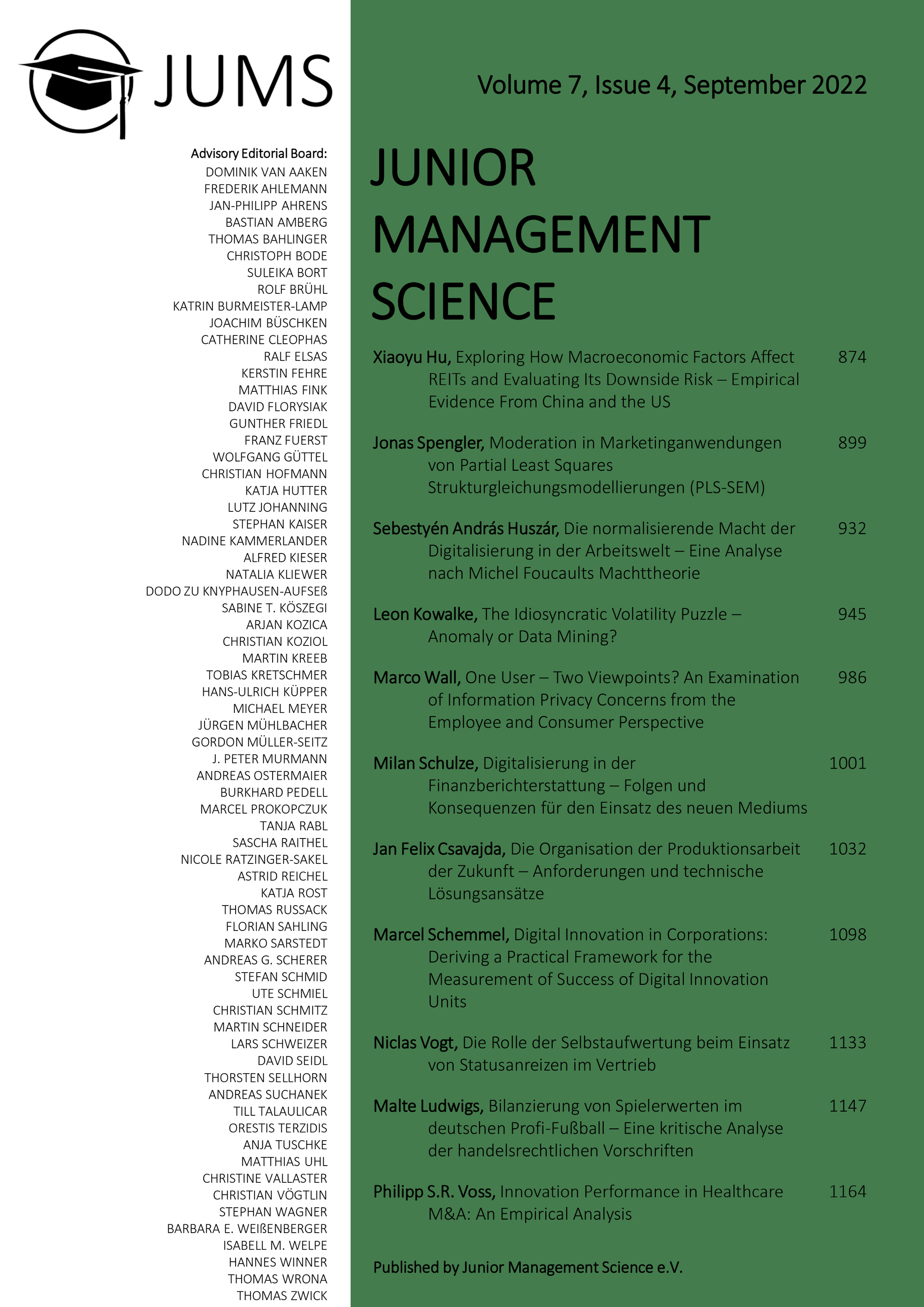Abstract
The relationship between mergers and acquisitions (M&A) and innovation in the healthcare sector (pharmaceuticals, biotechnology, medical devices, and life sciences) is investigated using a new self-generated dataset of 41 firms. Patents are used as proxy for innovation performance of acquiring firms. This work can also be seen as an extended replication study of Ahuja and Katila (2001) and Cloodt et al. (2006). The extension comprises of newly added variables relatedness of acquirer knowledge and acquisition experience. The findings are consistent with previous research. Non-technological M&A appear to have a negative impact on the acquiring firm’s innovation performance. The absolute size of acquired knowledge has a small positive effect. The relative size of acquired knowledge has a negative effect on the acquiring firm's innovation performance. The relatedness of the target knowledge base has a curvilinear impact on innovative performance. The relatedness of acquirer knowledge has a negative effect on innovation performance. Finally, the effect of previous acquisition experience is ambiguous. The findings of this study indicate that the firms' innovation performance can benefit from M&A by carefully selecting targets that provide the appropriate amount of "innovative" input.
Keywords: Mergers & Acquisitions; Innovation; Innovation Performance; Patents; Knowledge based view.

This work is licensed under a Creative Commons Attribution 4.0 International License.

